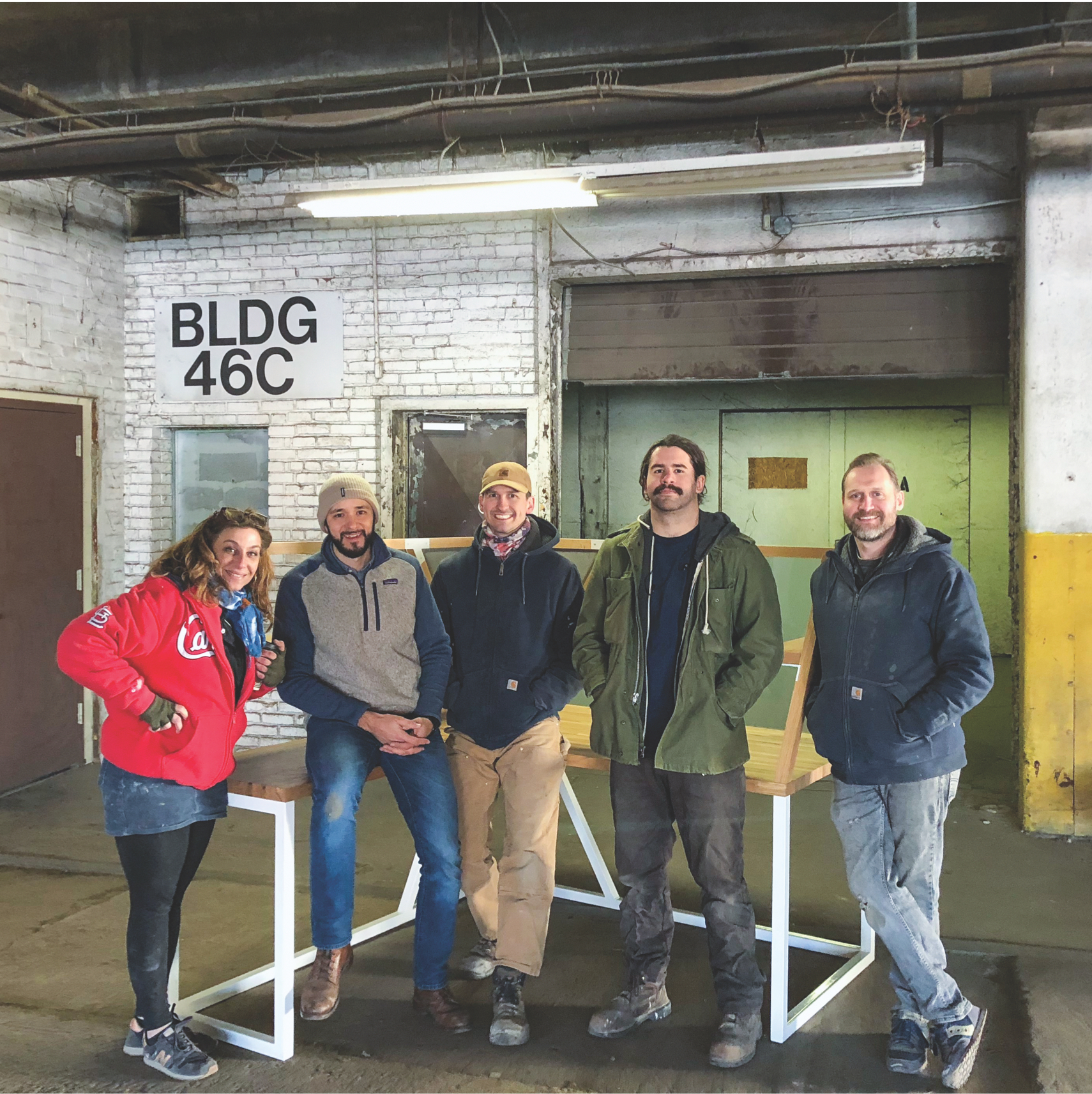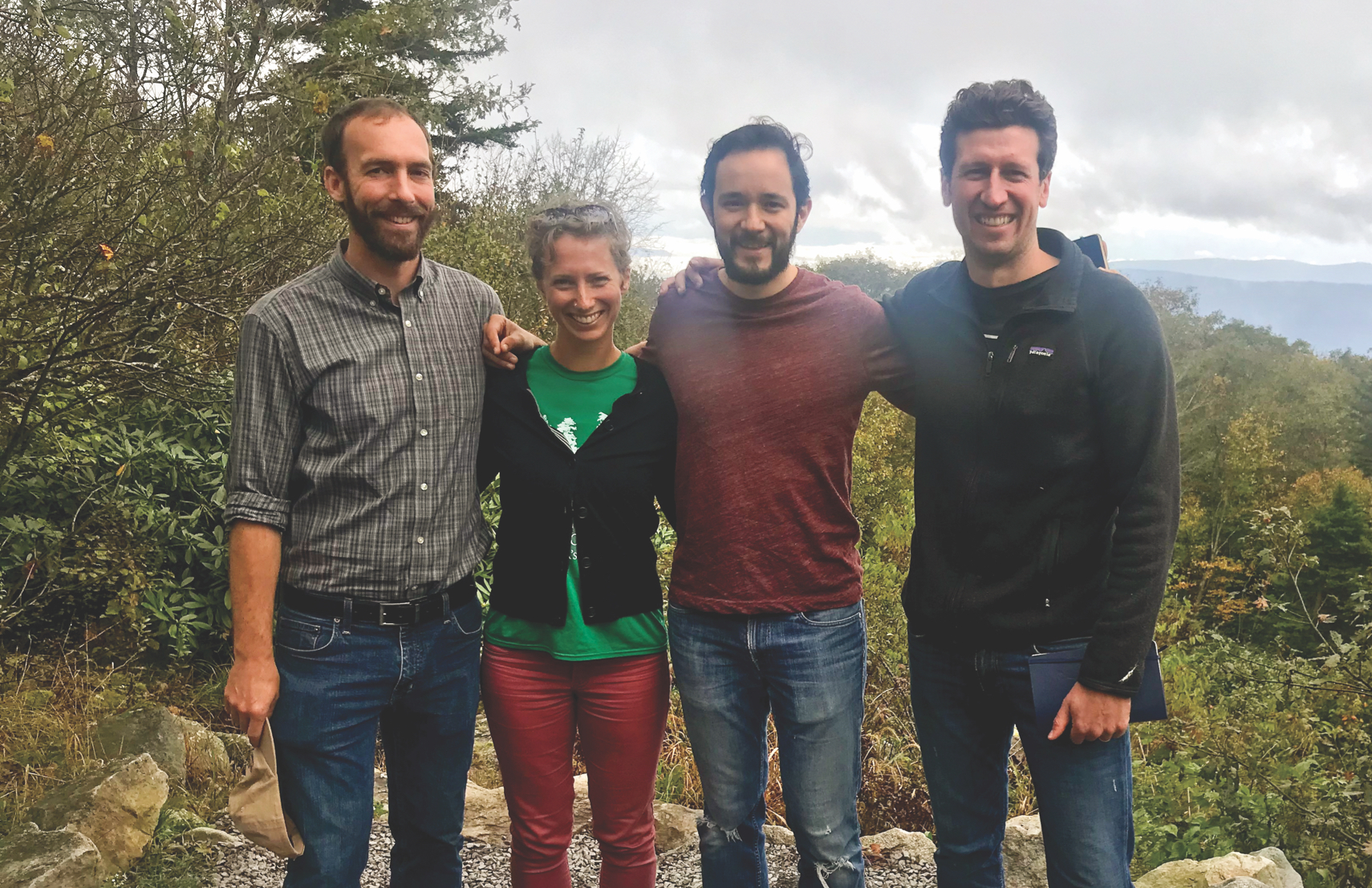When designing a new space on campus,there are numerous elements to consider — what is the purpose of the space? Who will use it? How big should it be? What kind of furniture should it have?
When designing the new Entrepreneurship Hub at Tribe Square, William & Mary staff turned to Fred Kukelhaus ’05, the co-founder of Hugo & Hoby, to answer that last question. An extension of the Alan B. Miller Entrepreneurship Center, the hub will support students from all disciplines interested in developing startups and their business acumen. The space needed original, well-made furniture, particularly for the student workspace.
Hugo & Hoby is a furniture company focused on craftmanship and sustainability. It is a design and fabrication resource for architects and interior designers in the commercial realm that have a need for unique, well-made furniture.
Kukelhaus’ company not only provided furniture for the Hub, it will also provide furnishings for the new Institute for Integrative Conservation, a cross-disciplinary institute focused on global conservation and sustainability challenges. Its facility is set to open in 2020.
Creating the Vision
Originally, Kukelhaus envisioned his company as a competitor to the likes of Ikea and Wayfair; it would provide affordable, flat-packed furniture built with an eye towards sustainability and local manufacturing.
“We thought all these customers were going to come knocking down our door because we’re not only beautiful, but sustainably and locally made,” he says.



